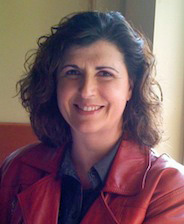Technology can provide educators with powerful online learning opportunities for personalized, relevant, and just-in-time learning they can access from anywhere, anytime. Many school districts choose and adapt online professional development (OPD) to meet their particular goals, programs, culture, and educator needs.Just like in face-to-face professional development, educators who learn in online learning contexts need opportunities to respond to what they are learning, exchange ideas, reflect on their practice, and receive feedback from qualified peers. Quality OPD should not only provide educators with access to relevant resources; it should also be based on principles of andragogy and online learning, include rich and relevant content, and provide educators with opportunities to transfer learning into K–12 learning environments.
In this era of new educational standards, there is an increased need for quality OPD that will help meet the curricular, instructional, and professional needs of educators. Publishers, state departments of education, agencies, and other professional development providers at the local, state, and national levels are offering different types of OPD. The following are examples of sample professional and other organizations’ OPD options.
- Association for Supervision Staff and Curriculum Development (ASCD): ASCD offers several online courses (e.g., understanding the common core writing standards for grades 6-12, understanding the whole child, and leading professional learning), webinars, and digital resources.
- International Reading Association (IRA): IRA offers many online resources by topic (see /Resources/ResourcesByTopic.aspx) including, podcasts, webinars, lesson plans, digital resources, etc.).
- Library of Congress: The Library of Congress offers a large choice of self-paced free courses (e.g., supporting inquiry with primary sources, copyright and primary sources, analyzing primary sources such as maps, etc.; see http://www.loc.gov/teachers/professionaldevelopment/selfdirected/).
- National Council for the Social Studies (NCSS): NCSS offers online professional development on the NCSS standards, resources, webcasts, and online networking spaces for social studies teachers.
- National Council of Teachers of English (NCTE): NCTE offers facilitated online courses, brief, self-paced online learning, and web seminars on a variety of common core-related topics (e.g., argumentation, supporting readers of informational texts, and using evidence to guide teaching and learning). For more information, visit http://www.ncte.org/online-learning.
- National Council of Teachers of Mathematics (NCTM): NCTM offers 12 weeklong online courses (e.g., algebra readiness for grades 6-8, e-seminars, webcasts, podcasts, and various online resources).
- National Science Teachers Association (NSTA): NSTA’s Learning Center (http://learningcenter.nsta.org) offers online science course, resources, and opportunities for science teachers to personalize their learning, earn badges, and network with peers and community experts.
- Public Broadcasting System—PBS TeacherLine: PBS TeacherLine provides many facilitated and self-paced online courses for K-12 educators (e.g., blended learning, digital literacy, instructional strategies, leadership, math, reading/language arts, science, STEM, and social studies/history).
Whether school districts or educators choose the OPD route for continuing education and/or professional development purposes, it is important to consider the following elements of effective OPD.
- Effective OPD is high quality, standards- and assessment-aligned, research-based, flexible, relevant to practice, accessible, and is based on a collaborative learning model.
- Select OPD that runs over a period of weeks to allow time for learning and reflection.
- Examine the credentials and training of online facilitators.
- Effective OPD is motivating, and it also includes incentives and credit for completion.
OPD will continue to be a viable choice for many educators. Choose to participate in OPD that will support your instructional and professional needs, challenge your knowledge and thinking about your practice, provide you with opportunities to collaborate with other educators, and invite you to reflect on your practice and on student learning.
 Vicky Zygouris-Coe is a Professor in Reading Education at the University of Central Florida, School of Teaching, Learning, and Leadership, Vassiliki.Zygouris-Coe@ucf.edu.
Vicky Zygouris-Coe is a Professor in Reading Education at the University of Central Florida, School of Teaching, Learning, and Leadership, Vassiliki.Zygouris-Coe@ucf.edu.
This article is part of a series from the International Reading Association Technology in Literacy Education Special Interest Group (TILE-SIG).
TILE-SIG will host a special session on Sunday, May 11 at 3:00 p.m. at the International Reading Association 59th Annual Conference in New Orleans. The session includes the presentation of the 2014 Technology in Reading Research Award, "Changing the Landscape of Literacy Teacher Education: Innovations with Generative Technology" with keynote Dana Grisham (National University, TILE-SIG 2013 Reading Research Award Winner), and 18 roundtable discussions about research findings and practical classroom ideas. Visit http://www.iraconference.org to learn more about IRA 2014 or to register.